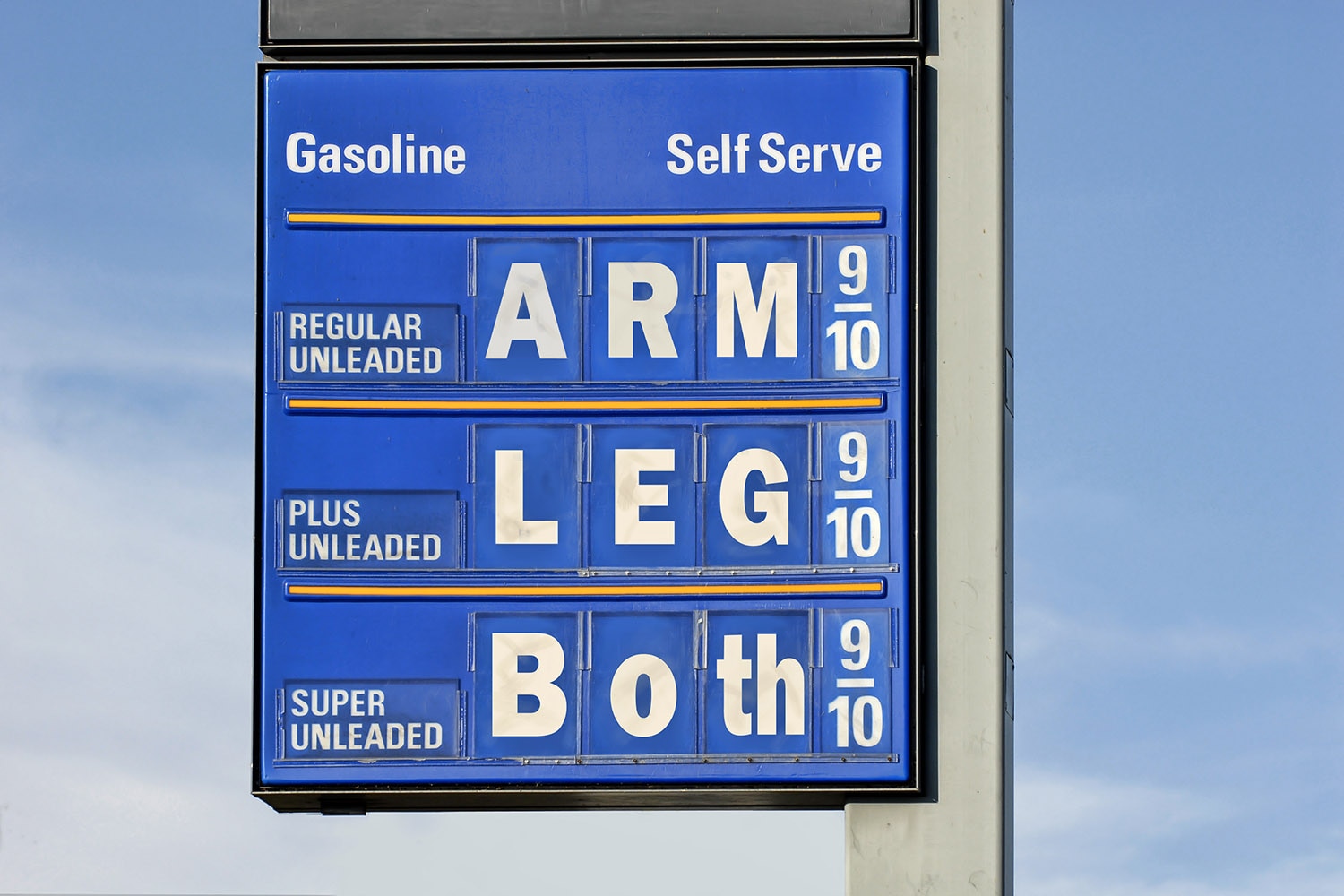When High Gas Prices Hit, Buying a Small Car Isn't the Answer
Unless you're driving a gas-guzzler, it's probably not worth paying the premium prices that fuel-sipping, pre-owned vehicles are demanding.
 Shutterstock
Shutterstock
With rising gas prices grabbing all the headlines, it may be tempting to buy a smaller, more fuel-efficient used car to save money. But with fuel-sippers demanding higher prices on the used car market, the price of fuel is not the only factor to consider in your overall car budget.
Recently, I was asked to sell my friend Dave's car. He drives a rolling creme puff: a full-sized, 2015 Cadillac XTS luxury sedan in showroom condition with just over 50,000 miles.
"I need a car that is better on gas, Steve!"
"But... but... but, Dave? You already own the car! And you don't drive all that much."
"Yeah, well, with gas at over $4 a gallon, my wife wants me to sell the Caddy. So I guess you should go ahead and look for the best used Kia Forte 5 out there because that's what she wants."
The Wrong Time to Buy the Wrong Car
In this market? The overall savings of a small car aren't what you think. And right now, fuel-efficient small cars are priced closer to Dave's much more capable and luxurious Cadillac.
When they first rolled off the showroom floor, a new, 2015 Kia Forte 5 compact hatchback sold for just under $20,000—about $25,000 cheaper than Dave's high-end 2015 Cadillac XTS. Today, the Kia sells for around $15,500, while the Cadillac goes for $19,900, a difference of only $4,400 at a wholesale auction. You will likely see a similar spread in retail values, as well.
And would you believe that on the highway, the Forte 5 consumes nearly as much gas (29 mpg) as the XTS (28 mpg)? Even around town, the tiny Kia drinks fuel at 21 mpg, only 3 miles per gallon more than the Cadillac.
If Dave were the average driver, his annual fuel cost savings in mixed driving would be only $400 a year ($2,700 for the Forte 5, versus $3,100 for the XTS, according to the EPA). That's just over one dollar a day. Now, you may be asking, what about a used Toyota Prius hybrid or a used electric car like the Nissan Leaf? Frankly, the lack of supply distorts values to the Cadillac's upside even more.
Beware of the Hidden Costs of Car-Switching
If Dave swaps out his more capable daily driver for a smaller used car, there are other expenses to consider. He would have to account for the sales tax and registration costs one pays on any new or used vehicle purchase. Depending on where you live, these added costs alone can often add another $1,400 to $1,700 on a $20,000 used car. In Dave's case, it would probably take him well over a decade to break even on trading his comfortable and luxurious Cadillac for that smaller and less comfortable Kia.
When you add it all up, today's price premiums on smaller, fuel-efficient used cars may not save you as much money overall in the long run.
So do yourself a big favor. Take an honest account of your daily driving needs and the costs of trying to switch cars to save money. You may discover that buying an overpriced, smaller used vehicle will cost you more than continuing to drive your current car.
Written by humans.
Edited by humans.
 Steven Lang
Steven LangSteven Lang is a special contributor to Capital One with nearly two decades of experience as an auto auctioneer, car dealer, and part owner of an auto auction. Some of the best-known auto publications turn to him for his expert insight. He is also the co-developer of the Long-Term Quality Index, a survey of vehicle reliability featuring over two million vehicles that have been inspected by professional mechanics.
Related articles
View more related articles